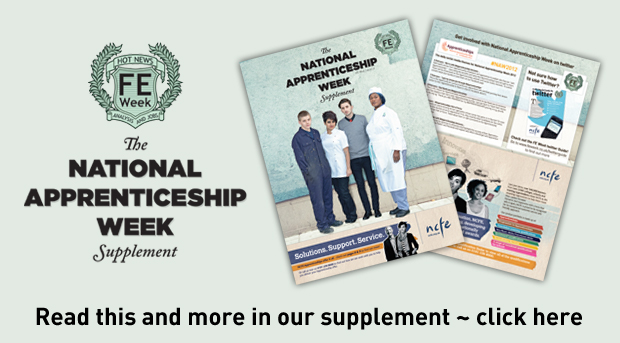Despite a lot of media coverage of apprenticeships in the last year, not enough has been heard from the apprentices themselves. We know that the Government and employers invest in the apprenticeship programme and that they get a healthy return on their investment. Apprentices also make an investment so it is worth reflecting on the ‘return’ for them.
Last year we carried out a survey of 81 people from across the country, aged 17 to 61, who had been nominated for the Adult Learners’ Week Adult Apprentice of the Year Award, sponsored by Pearson. The results were incredible and show just how worthwhile the increased investment in apprenticeships is for all sorts of people at all stages of their lives.
For many, the experience has truly transformed their lives: “Doing the apprenticeship has changed my life. I am much more focussed. I am doing a real job in a real workplace gaining the most brilliant experience.” Underlying this is the sense that it has given them a fresh start and has helped them prove to themselves and to others that they are not a failure. “I feel that as a middle-aged woman what I have achieved is remarkable. My journey has not finished – it has only just begun.”
With FE Loans, the learner/apprentice will be the purchaser, will feel able to shop around, will look for the best offer. Will this be empowering?”
Even more than this, the impact reaches forward into future learning, personal development and family life. “I am so sorted now, feeling much more positive about myself and my family are more relaxed around me and are proud of me.”
If they are that good then making the case for more investment must be easy and it certainly looks positive with the very welcome and large increase in Government investment. From 2013, those over the age of 24 will need to take out a loan for their apprenticeship and there is a lot of understandable concern about the impact this will have on fairness and equality (see NIACE Adults’ Learning extra January 2012) but perhaps too little thinking about the potential positives.
Our survey of adult apprentices not only gave evidence of the benefits, it also taught us how important it is to listen to the learner experience. Our respondents had ideas about how to improve quality, how to advise potential apprentices, what worked for them and what might work better for others. In the best examples, learners felt empowered at work, at home and in their communities.
With FE Loans, the learner/apprentice will be the purchaser, will feel able to shop around, will look for the best offer. Will this be empowering?
Will people with the right advice and guidance, with better public information, be able to demand a better quality offer? Will this result in a more personalised learning experience, with curriculum and delivery designed to meet their needs? Will people demand a more blended offer, with more use of technology and distance learning? Any provider of training who can tap into this demand will surely be more successful, just like in any other market-place?
So, here at NIACE we are keen to do more work to capture the apprentice voice, to help empower learners to get more of what they need and to support people to get the best possible information, advice and guidance to be able to be informed customers. It will be fascinating to see if the introduction of FE Loans helps accelerate this.
The final words should go to an apprentice: “If it wasn’t for my apprenticeship I would still be stuck in a rut with no direction to walk in. Now I have this qualification I feel a new person with limitless possibilities and it has given me back the drive to learn to further myself in my career. I owe my whole career down to one qualification – thank you!”
David Hughes is the CEO of the National Institute of Adult Continuing Education (NIACE)










Your thoughts